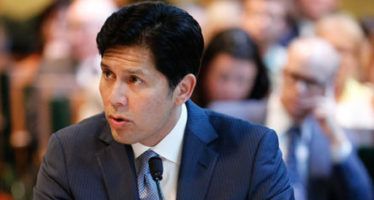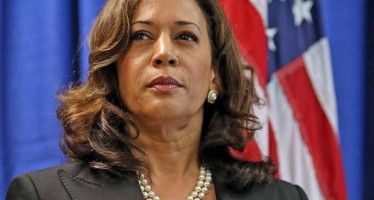Other cities could follow Sac utility measure
Feb. 15, 2010
By KATY GRIMES
In the first of its kind in the state, the Sacramento County Taxpayers League filed a ballot initiative to roll back monthly utilities rates. Filing Wednesday February 10, 2010 at the Sacramento City Clerk’s office, the Tax League announced that it will start gathering signatures for the initiative in early March and is seeking to qualify the measure for the Nov. 2, 2010 general election ballot.
“This measure will put the Sacramento Department of Utilities on a critically needed fiscal diet and end the city’s current practice of treating Sacramento residents like a giant ATM machine with unlimited overdraft privileges,” said Craig Powell, a Tax League director and initiative chair.
In 1996, the Howard Jarvis Taxpayers Association (HJTA) authored Proposition 218, “The Right To Vote On Taxes Act,” which specified that rate rollback initiatives can be qualified with just a modest number of signatures. According to the HJTA, Proposition 218 “plugged a long-standing loophole in Proposition 13 by requiring localities to get a popular vote, or in some cases, permission from property owners, for fees, assessments, and other levies that operated as taxes but weren’t technically called taxes. This initiative now saves California taxpayers about $100 million a year.”
If Sacramento voters approve the measure — titled “Utilities Rate Hike Rollback Initiative” — it would cancel an upcoming 9.2 percent hike in city utilities rates, freeze rates for a year and permit the Sacramento City Council to increase rates in the future to cover increases in the consumer price index (CPI). To raise rates by more than the CPI, the city would have to persuade city voters to either modify or repeal the measure.
The supporters of Sacramento’s utilities rate rollback initiative hope that the success of the Sacramento initiative might serve as both a catalyst and a template for utilities rate rollback initiatives in other communities and cities in California, many of which have experienced large rate hikes for municipal utilities services. “It is a huge challenge to stop jumbo utilities rate hikes from being approved by municipalities since so many cities, counties and special districts are politically dominated by public employees unions who are the principal beneficiaries of such hikes,” said Powell.
Last June, the Sacramento City Council imposed a 19 percent utility hike on its citizens at time when residents are struggling to hold onto their homes and local businesses are closing their doors at record rates. In the past nine years, rate hikes approved by the council have exceeded the rate of inflation by more than 321 percent. Since 2006, the Utility Department rate hikes have exceeded inflation by a scandalous 1,321 percent.
“The Sacramento Department of Utilities shows every sign of a department utterly out of control and getting worse by the day,” Powell added. Seven months ago, the utility department approved pay raises and fringe benefit increases to most of its employees. At the same time, the city parks department was firing 41 percent of its park workers and all other city employees gave up pay hikes and accepted unpaid furloughs.
Five months ago, the city was awarded more than $22 million in federal stimulus funds to pay for a huge acceleration in the rate of installing water meters in Sacramento, even though the city council’s principal justification for spiking rates in June was to pay for faster installation of water meters. Yet the City Council has not offered ratepayers any relief from the jumbo rate hikes after it received millions of unexpected federal dollars.
Adding insult to injury, last month the Sacramento County Grand Jury criticized city officials for diverting $21 million in ratepayer money in violation of Proposition 218 and the California Constitution. According to the Grand Jury report, “The grand jury found that, at best, the city has not done enough to determine whether the city is violating the law and, at worst, has shifted millions of dollars in costs from the general fund to utility enterprise funds.” It also found that city officials were covering up the illegal spending of city utilities funds. The city council thus far has not begun to investigate the matter.
According to a financial analysis prepared by a four-member Taxpayer League study group, the anticipated impact of the initiative on the Sacramento economy is that Sacramento residents and business will realize over $473 million in rate savings over the next decade, significantly increasing the purchasing power of consumers while greatly improving Sacramento’s business climate by making it a far more attractive destination for businesses.
“With municipal utilities rates exploding in communities all across California, we believe that the utilities rate rollback initiative has the potential for serving as the ‘Prop 13’ of the modern era,” Powell said.
link to the Grand Jury Report: [PDF]Sacramento County
Related Articles
California Democrats brace for intra-party battle after Kevin de León announces bid to unseat Feinstein
Amid intense calls from progressives for a primary opponent for U.S. Sen. Dianne Feinstein, D-Calif., state Senate Pro Tem Kevin
Mixed reviews for Gov. Brown on actor age database law
Rarely the subject of entertainment industry buzz, Gov. Jerry Brown sparked outrage and confusion among First Amendment advocates by a new
State attorney general and charter school haggle over education settlement
California Senate candidate Kamala Harris has kicked over a hornet’s nest in a big but contentious settlement with the nation’s largest




